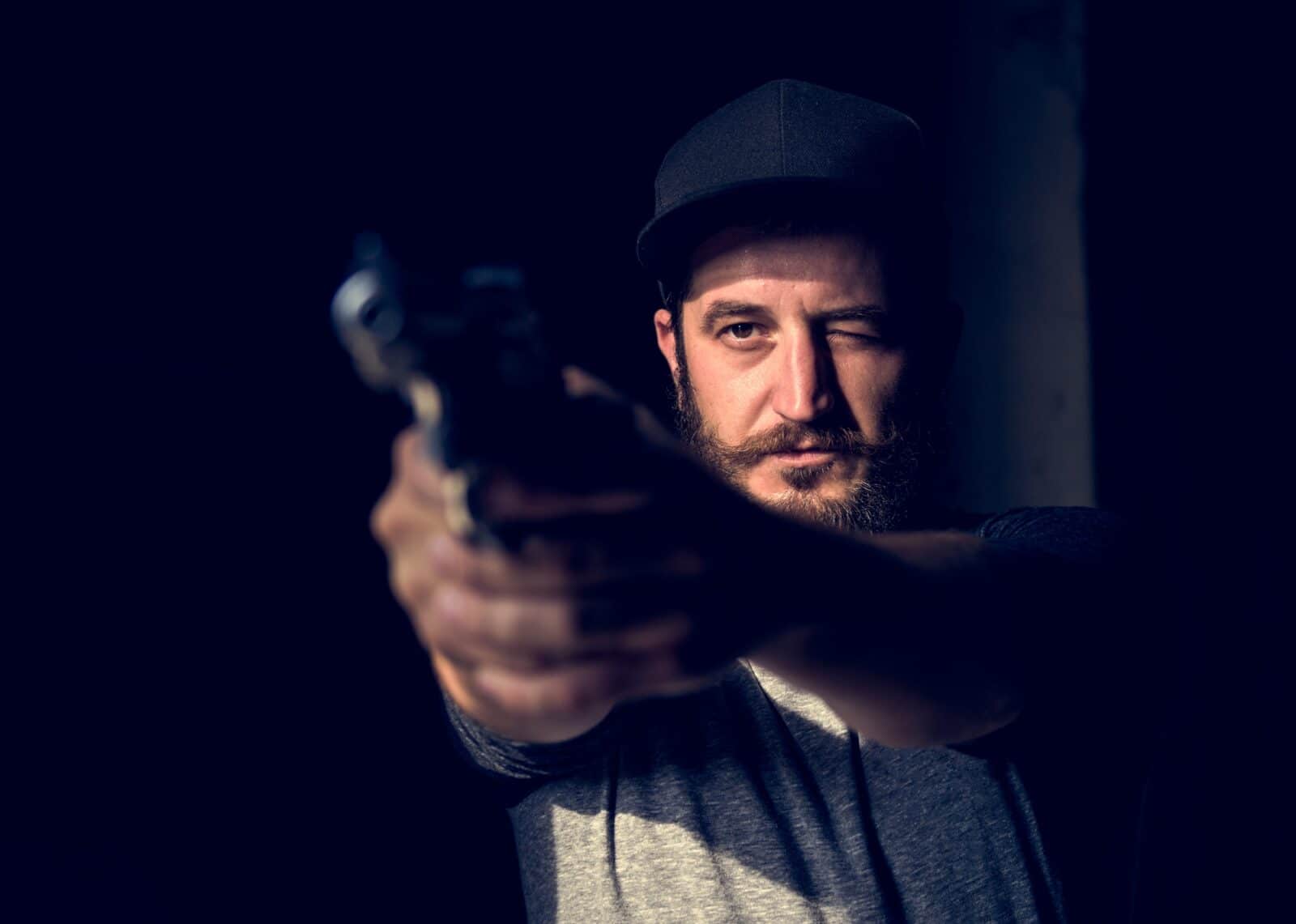Self-defense is a fundamental right, but understanding where legal protection ends and criminal liability begins can mean the difference between freedom and incarceration. Each year, numerous Floridians find themselves facing serious legal consequences because they crossed the line between justified self-defense and excessive force in moments of fear or confusion.
The legal system carefully scrutinizes self-defense claims, examining every detail from the initial threat to the response and its aftermath. Keep reading to learn more about how Florida courts determine whether actions were reasonable and proportionate or if they crossed into excessive territory.

Understanding Self-Defense Laws in Florida
Florida's self-defense laws provide robust protections for individuals who reasonably believe they need to use force to protect themselves or others. Unlike some states that impose a "duty to retreat" before using force, Florida's laws allow individuals to stand their ground and meet force with force in many situations.
For a self-defense claim to be valid in Florida, several conditions must be met. The individual must reasonably believe they are in imminent danger of harm, the force used must be proportionate to the threat faced, and in most cases, the individual must not have initiated or provoked the confrontation. These laws aim to protect individuals' rights to self-defense while preventing vigilante justice or disproportionate responses to minor threats.
These self-defense laws establish the foundation for determining when force becomes excessive. When a person's actions exceed what these laws permit, they move from justified defender to potential criminal defendant. Understanding this baseline is crucial for recognizing when lawful self-defense might cross into excessive force territory.
Stand Your Ground Law
Florida's Stand Your Ground law, enacted in 2005, significantly expanded self-defense protections in the state. Under this law, individuals who reasonably believe they are in danger of death or great bodily harm have no duty to retreat before using deadly force, regardless of whether they are in their home or a public place.
The law provides immunity from criminal prosecution and civil liability if the force used was justified under the statute. This means that if a judge determines in a pre-trial immunity hearing that the defender acted within the parameters of the Stand Your Ground law, the case can be dismissed before it goes to trial. However, this immunity is not automatic – the defender must demonstrate that their use of force was reasonable under the circumstances.
Castle Doctrine
The Castle Doctrine in Florida provides special protections for individuals defending themselves within their homes or vehicles. Under this doctrine, there is a presumption that a person who uses deadly force against someone who unlawfully enters their dwelling, residence, or occupied vehicle had a reasonable fear of imminent death or great bodily harm.
Unlike the Stand Your Ground law, which applies in any location, the Castle Doctrine specifically addresses self-defense in one's "castle" – their home or vehicle. The doctrine creates a strong legal presumption in favor of the defender when an intruder unlawfully enters these spaces, making it easier to justify the use of force, including deadly force, in these scenarios.
Defining Excessive Force
Excessive force in self-defense occurs when the level of force used exceeds what a reasonable person would consider necessary to neutralize the threat. Even when starting with a legitimate right to self-defense, going beyond what's necessary to ensure safety can transform a lawful act into a criminal one.
For example, if someone threatens you with their fists and you respond by shooting them multiple times, this might be considered excessive force. Similarly, if you continue to attack an aggressor after they've been incapacitated or are attempting to flee, you've likely crossed into excessive force territory.
Non-deadly excessive force can also occur in less severe confrontations. For instance, responding to a light shove by repeatedly striking someone with a blunt object, or using pepper spray on someone who merely shouted verbal threats without any physical aggression. Courts examine both the type and amount of force used, as well as whether the threat had diminished or ended, when evaluating if force was excessive.
Factors Considered in Determining Excessive Force
Courts evaluate several key factors when determining whether the force used in self-defense was excessive. The nature and severity of the threat are paramount – was the aggressor armed or unarmed? Did they make verbal threats or demonstrate violent intentions? The physical disparities between the parties also matter, as a significant size or strength advantage might justify greater force from a smaller defender.
The defender's state of mind plays a crucial role, including whether they had reason to believe deadly force was necessary. For instance, if an intruder breaks into a home at night and the homeowner has reason to believe the intruder is armed, greater force might be justified than in a daytime confrontation with clear visibility.
The proportionality of response is also scrutinized – did the defender use similar force to what they faced, or did they escalate significantly? Finally, opportunities to retreat or de-escalate are considered, even in Stand Your Ground states.
In Florida cases like State v. Smiley (2018), courts have examined whether a defendant continued to use force after the threat had subsided, ruling that immunity didn't apply when the defendant pursued and further injured an attacker who was already fleeing. These real-world applications help illustrate how courts apply these factors in practice.
Legal Consequences of Using Excessive Force
When self-defense crosses the line into excessive force, the legal system can respond with significant consequences. These outcomes vary based on the severity of force used, the resulting harm, and the specific circumstances of each case.
Those who exceed necessary force may find themselves transformed from potential victims to defendants, facing a range of legal challenges that can impact their freedom, finances, and future. Understanding these potential consequences is necessary for making informed decisions in dangerous situations.
Criminal Charges
Using excessive force in self-defense situations can result in various criminal charges, ranging from misdemeanors to serious felonies. Simple assault (an intentional threat causing fear of harm) or battery (actual offensive physical contact or harm) charges might apply in cases with minor injuries, while aggravated assault or battery charges can result when weapons are involved or serious injuries occur.
In cases where excessive force results in death, charges may include manslaughter or even murder. For example, if someone initially acts in self-defense but continues attacking after the threat has subsided, resulting in death, they might face manslaughter charges.
Penalties for these crimes in Florida can be severe, with potential prison sentences ranging from several years to life imprisonment, depending on the offense and the defendant's criminal history.
Civil Liability
Even if criminal charges aren't filed or result in acquittal, individuals who use excessive force may face civil lawsuits from the injured party or their family. These lawsuits typically seek monetary damages for medical expenses, lost wages, pain and suffering, and in fatal cases, wrongful death.
The civil court system operates under a lower standard of proof than criminal courts. While criminal convictions require proof "beyond a reasonable doubt," civil cases only require a "preponderance of evidence," meaning it's more likely than not that the defendant is liable.
This lower threshold means that someone could be acquitted of criminal charges but still be found liable in civil court and ordered to pay substantial damages. It's important to note that while Florida's Stand Your Ground law does provide immunity from civil liability when force is justified, this protection doesn't extend to cases where a court determines the force used was excessive.
Loss of Self-Defense Claim
Using excessive force can completely invalidate what would otherwise be a legitimate self-defense claim. When force exceeds what's reasonably necessary, the legal protection of self-defense may be lost entirely, leaving the defendant fully exposed to criminal liability.
In some jurisdictions, the concept of "imperfect self-defense" may apply. This occurs when someone genuinely but unreasonably believed they were in danger, or when they used more force than necessary despite a genuine threat. While this concept exists in legal theory, Florida courts have generally not recognized imperfect self-defense as a distinct legal doctrine in case precedents, making the stakes particularly high in excessive force cases.
Recognizing When Self-Defense Becomes Excessive
Understanding how a legitimate self-defense situation can transform into excessive force is crucial for avoiding legal complications. This transformation often occurs in the heat of the moment, when adrenaline and fear can cloud judgment and lead to actions that go beyond what's legally justified.
The line between necessary and excessive force can be crossed in several ways. One common scenario occurs when an initial threat is neutralized, but the defender continues to use force. For example, if an attacker falls to the ground and is no longer a threat, continuing to strike them crosses into excessive territory. Similarly, pursuing a retreating attacker who no longer poses an immediate threat can transform self-defense into assault.
Awareness of these transition points is essential. Physical cues that an attacker is no longer a threat include when they retreat, surrender, become incapacitated, or are disarmed. When these signs appear, continuing to use force becomes increasingly difficult to justify legally.
Legal Defense Strategies
Despite the serious nature of excessive force allegations, effective legal defense strategies exist to challenge such claims or mitigate their consequences. Having skilled legal representation is crucial for anyone facing charges related to excessive force in self-defense situations.
An experienced defense attorney can help identify weaknesses in the prosecution's case, present evidence supporting the defendant's perspective, and navigate the complex legal standards applied in self-defense cases. The right defense strategy can make the difference between conviction and acquittal.
Challenging the Excessive Force Determination
Defense attorneys often focus on challenging the prosecution's claim that the force used was excessive under the circumstances. This may involve presenting evidence about the defender's perception of the threat at the time of the incident, not with the benefit of hindsight.
Expert witnesses can play a crucial role in these cases. Use-of-force experts, self-defense instructors, or specialists in the psychological effects of high-stress situations may testify about reasonable responses to perceived threats. Finding these experts typically involves working with your defense attorney, who maintains a network of qualified professionals for different aspects of criminal defense cases.
The defender's background and training can also influence what's considered reasonable – someone with combat training might be held to a different standard than someone without such training. Additionally, evidence about the aggressor's history of violence, if known to the defender at the time, may help explain why the defender perceived a serious threat warranting the level of force used.
In Florida cases, successful defense strategies have included demonstrating that the defendant reasonably believed the threat was continuing even if it objectively had diminished, particularly in situations involving multiple attackers or when weapons were present.
Mitigating Factors
Even when the force used is determined to be excessive, various mitigating factors can affect the outcome of the case. A defendant's clean criminal record can suggest that the incident was out of character and not indicative of violent tendencies. Evidence that the defender attempted to de-escalate the situation before resorting to force demonstrates good faith and responsible behavior.
The defender's state of mind is particularly important – were they in fear for their life or safety? Was their perception of danger reasonable given the information they had at the time?
Physical or psychological conditions that might have affected the defender's judgment or perception can also be relevant. For example, a history of past victimization might make someone more sensitive to perceived threats. These factors may not provide complete immunity but can influence charging decisions, plea negotiations, or sentencing.
Preventing Excessive Force Situations
The best way to avoid legal complications related to excessive force is to prevent such situations from occurring in the first place. Taking proactive steps to understand self-defense laws, develop sound judgment, and practice de-escalation techniques can help individuals protect themselves without crossing legal boundaries.
While self-defense is a legitimate right, prevention and preparedness are always preferable to facing potential legal consequences, regardless of how justified one might feel in their actions.
De-escalation Techniques
De-escalation techniques are valuable skills that can prevent confrontations from reaching the point where force becomes necessary. Maintaining a calm demeanor when facing aggression can help prevent situations from escalating. Using a steady, confident tone of voice while avoiding threatening language or gestures shows control without aggression.
Creating distance between yourself and a potential threat provides time to think and reduces the immediate danger. When possible, seeking exits or safe spaces is preferable to confrontation.
In Florida, understanding verbal warnings can be particularly important. While not always legally required, clearly stating that you are armed and prepared to defend yourself before using force may help establish your intent to avoid conflict rather than escalate it. This can be relevant evidence in later legal proceedings.
Clear, direct communication about boundaries can sometimes defuse situations before they become violent. Statements like "I don't want any trouble" or "Please step back" clearly communicate boundaries without escalation. Additionally, recognizing warning signs of potential violence allows for earlier intervention or evasion.
Self-Defense Training
Proper self-defense training goes beyond teaching physical techniques – it includes education about situational awareness, threat assessment, and appropriate use of force. Training helps individuals understand the spectrum of force options available and when each is appropriate. This knowledge can prevent overreactions born from panic or insufficient preparation.
Quality self-defense programs emphasize that physical force should be a last resort, used only when other options have been exhausted. They teach techniques that are effective but proportionate, focusing on controlling threats rather than causing unnecessary harm.
When selecting a self-defense program in Florida, look for instructors who incorporate legal aspects of self-defense into their curriculum and have credentials from recognized organizations. Programs that include scenario-based training that simulates real-world situations can help develop judgment about appropriate levels of force. Many reputable martial arts schools, law enforcement organizations, and dedicated self-defense academies throughout Florida offer programs that balance effective techniques with legal awareness.
Safe Firearm Handling for Self-Defense
For Floridians who keep firearms for self-defense, proper handling and storage are crucial for preventing excessive force incidents. Without proper training, even those with legitimate self-defense concerns may misuse firearms in high-stress situations, potentially causing unintended harm or exceeding necessary force.
Understanding when drawing a weapon is appropriate is as important as knowing how to use it. Firearms should only be presented when there is a genuine and immediate threat of severe harm or death. Once the threat is neutralized, continuing to brandish or discharge a firearm may constitute excessive force.
Investing in proper firearms training from certified instructors helps develop not just technical proficiency but also the judgment to know when deadly force is legally justified. Many ranges and training facilities in Florida offer specialized courses in defensive firearm use that include legal considerations alongside shooting skills.
Speak With A Criminal Defense Attorney Today
Understanding the line between justified self-defense and excessive force requires more than just knowing the law – it demands careful judgment in high-pressure situations. The legal system recognizes the right to protect yourself, but holds individuals accountable when their actions exceed what's reasonably necessary for safety.
If you're facing charges related to excessive force in a self-defense situation, your freedom and future may be at stake. Self-defense cases involve complex legal interpretations and fact-specific analyses that require professional guidance. The sooner you secure legal representation, the better your chances of building an effective defense strategy.
Call Weinstein Legal Team at 888.626.1108 to speak to a criminal defense lawyer immediately about your charges, or click here to start a free, no-obligation case review online.


